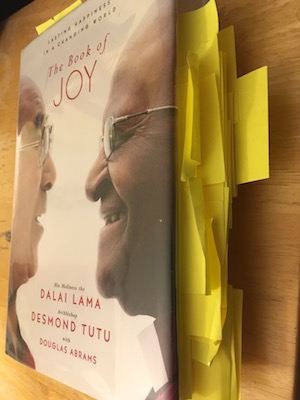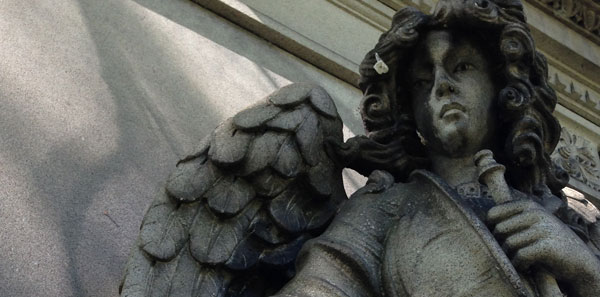“One shouldn’t pretend that people don’t get overwhelmed by the sense of impotence, but do what you can where you can.”
–Archbishop Desmond Tutu
That’s what I read today shortly after opening up The Book of Joy. After yesterday, when I was at risk of feeling overwhelmed by a sense of helpless and hopelessness after the massacre of children in Parkland, Florida, I could not have asked for a better reminder.
Also this:
“Start where you are, and realize that you are not meant on your own to resolve all of these massive problems. Do what you can. It seems so obvious. And you will be surprised, actually, at how it can get to be catching.”
And this:
“We are fundamentally good. The aberration is not the good person; the aberration is the bad person. We are made for goodness.”
I could go on and on. This is a remarkable book. It’s not the best-written book that I’ve ever opened, but I find something helpful in it every day I read it. It is profound.
I should make clear, before I go much further, that I am not someone who generally reads what I would consider self-help books. I’m not that person. My reaction to this book is extraordinary. I can’t get enough.
 Here’s what the book looks like at this point, when I’m about three-fourths of the way through it. When books challenge me—through either their ideas or their writing—I often use sticky notes to mark pages with passages to which I think I might want to refer back. This book is littered with stickies. I hardly know where to start looking when I want to remember a passage.
Here’s what the book looks like at this point, when I’m about three-fourths of the way through it. When books challenge me—through either their ideas or their writing—I often use sticky notes to mark pages with passages to which I think I might want to refer back. This book is littered with stickies. I hardly know where to start looking when I want to remember a passage.
One issue I struggle with in thinking about cultivating joy in my life is the concern that it seems selfish. It seems wrong to focus inward, to be concerned for my own happiness, in a world where so many people have so much less than I. But the reason I wanted to explore this book is that I know living without joy focuses me further inward. It’s hard to work toward any goal, whether self-improvement or societal betterment, without feeling a core sense of happiness, or contentedness, or what Archbishiop Tutu and the Dalai Lama call joy. These two holy men constantly remind the reader of this, emphasizing that joy and charity and generosity go hand in hand, that the path to joy is through service and kindness, but the path to service and kindness also is through joy. Caregivers are often reminded that they can’t take care of others unless they also take care of themselves; air travelers are instructed to attend to their own oxygen mask in an emergency before helping the children sitting next to them. The Dalai Lama and Archbishop Tutu bring the same message: You must care for yourself in order to care for others.
Some time back, a good friend gave me another book by the Dalai Lama. I loved the gift, and it still sits by my bedside, but it has never floated up to the top of my must-read stack. I think I’ll be opening it as soon as I finish The Book of Joy.

